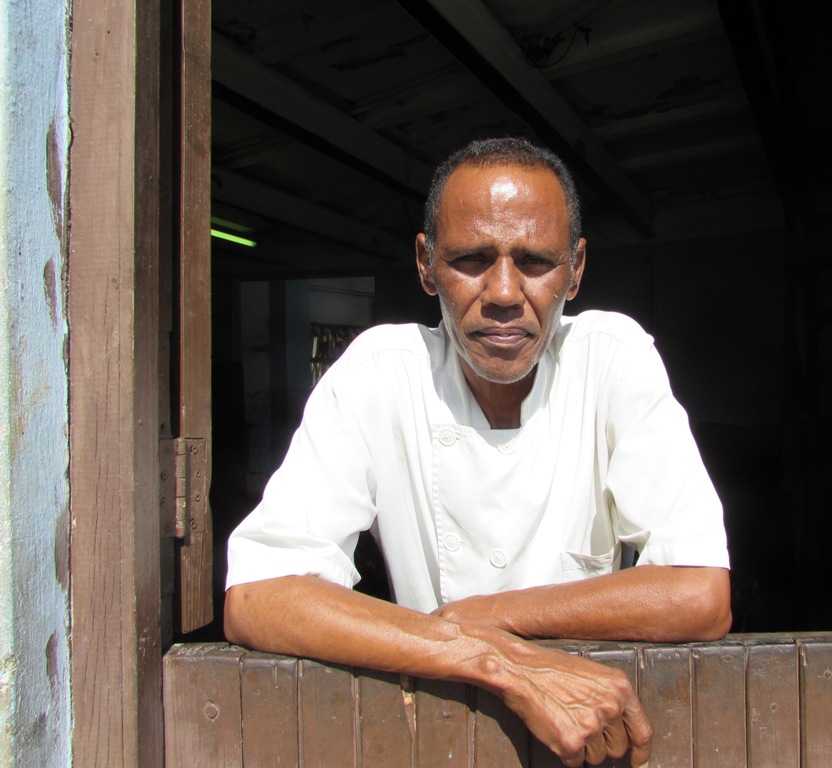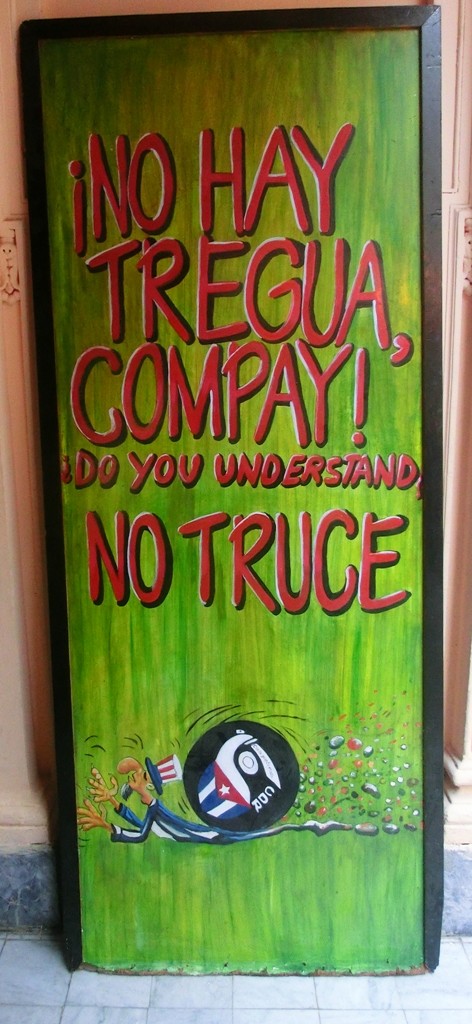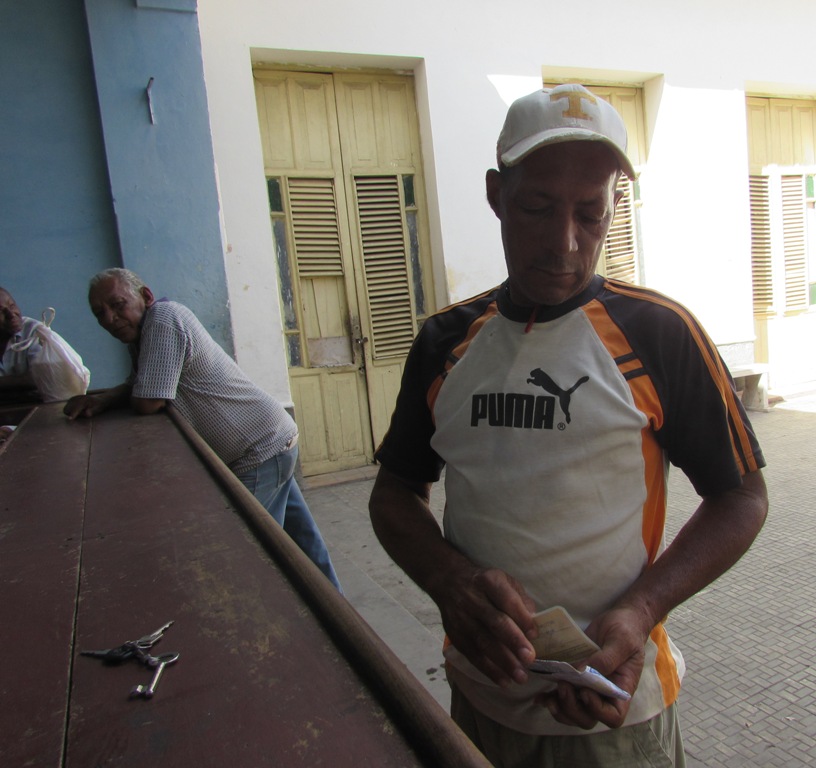Klaus Hart Brasilientexte
Aktuelle Berichte aus Brasilien – Politik, Kultur und Naturschutz
„I don`t trust US“. Fidel Castro (RT). Aufgrund der historischen Erfahrungen mit Folter-und Aggressionsstaat USA allgemeine Stimmungslage in Kuba 2015.
‘I don’t trust US’: Fidel Castro breaks silence on Cuba-America reconciliation
„I don’t trust the policy of the United States… but this does not mean I reject a pacific solution to the conflicts,” iconic former Cuban leader Fidel Castro commented on the push for a restoration of Cuban-American ties.
This is the first time the ex-revolutionary president has spoken publicly since the December 17 US push for a historic reconciliation between the two nations. The comments also come on the heels of Obama’s Congressional push to lift the five-decade Cuban embargo and his granting the State Department six months to review Cuba’s status on the terror list.
READ MORE: Obama: Congress should begin lifting Cuba embargo
In another historic rapprochement, Cuba celebrated when Obama agreed to the release of 53 of its prisoners earlier in January, with only a few remaining behind bars.
READ MORE: Cubans release 53 prisoners after Obama announces thaw in relations
The 88-year-old Castro does not “trust the US, nor have I exchanged any words with them,” he wrote in a letter addressed to the student federation at the University of Havana and printed in the Communist Party newspaper Granma.
However, “it does not mean I reject a pacific resolution to the conflicts,” Castro continues. “We will always defend cooperation and friendship with all the people of the world, including our political adversaries.”

Not everyone in Washington was happy about Obama’s “hand of friendship to the Cuban people.”Republicans John McCain, Lindsay Graham and Jeb Bush had harsh words – especially when it came to the prospect of opening an embassy in Havana. A joint statement from McCain and Graham called the new initiative an “appeasement of autocratic dictators, thugs and adversaries, which is dimi nishing America’s influence in the world.” They also believe “America and the values it stands for is in retreat and decline.”
READ MORE: US politicians speak out against closer ties with ‘Castro regime’
Castro’s statement on the United States also comes two weeks after the former communist leader penned one to football icon Diego Maradona. That move ended almost three months of suspicions that the former leader had passed away. Castro had been missing from the public eye the whole time, fueling the rumors.

The revolutionary was forced to step down from his duties as president and hand the reins over to his brother Raul when he became seriously ill in 2006.
READ MORE: ‘Fidel doing very well’: Maradona receives letter from Castro
Although Castro had reconciliatory words on the relationship with the US, the former president has still not voiced his opinion on his younger brother’s decision to reconcile with Cuba’s age-old enemy – the same country that tried numerous times to assassinate Fidel, which is a world record.
„Cuba’s president has taken steps within his range of authority and the powers granted him by the National Assembly, and the Communist Party of Cuba,“ Fidel’s measured words read.
„No hay tregua compay! Do you understand, no truce.“
SPD-Steinmeier 2015 in Kuba:http://www.hart-brasilientexte.de/2015/07/16/steinmeiers-historische-kubareise-tagesschau-2015/
Folterstaat USA blamiert sich bei Verhandlungen in Havanna: Nach Vietnamkrieg, Angolakrieg, Irakkrieg, Libyenkrieg, Afghanistan, Syrienintervention, Ukraine-Einmischung, NSA, Guantanamo-Folter-KZ, Ferguson, Schulmassakern etc. stellen Washingtoner Emissäre ausgerechnet Menschenrechtsforderungen. **
…Dabei müsse es dann auch darum gehen, dass in dem Gefangenlager Guantánamo gefoltert werde, sowie um die Polizeiwillkür und den Rassismus, die sich etwa in Ferguson gezeigt hätten. Auch über die „Gehaltsungleichheit“ in den Vereinigten Staaten will Kuba diskutieren…FAZ
http://www.hart-brasilientexte.de/2015/01/22/folterstaat-usa-und-kuba-2015/
Kubas Angolakämpfer – hochangesehen in der Bevölkerung:

Vier Jahre in Angola als Soldat gegen USA/ CIA – in der wichtigen Schlacht von Cuito Cuanavale dabei, Apartheid Südafrikas zum Einstürzen gebracht. ” Sie wird zu den entscheidenden Schlachten desAngolanischen Bürgerkriegs(1975–2002) gezählt und zudem als einer der Marksteine zur Beendigung derApartheid in Südafrika angesehen.” Wikipedia
In deutschen Medien ist gewöhnlich per Zensurvorschrift verboten, über die Rolle Kubas bei der Zerschlagung des Apartheid-Regimes von Südafrika zu berichten – per Google-Suche hat man rasch heraus, auf welche Medien dies zutrifft.
http://de.wikipedia.org/wiki/B%C3%BCrgerkrieg_in_Angola
“Die Kämpfe in Angola brachen nur kurz nach dem Ende des Vietnamkrieges aus und die USA reagierten daher empfindlich auf eventuelle weitere Rückschläge in anderen Regionen…Die südafrikanische Armeemarschierte am 23. Oktober 1975 mit Billigung der USA in Angola ein, mit dem Ziel, die Anlagen des Cunene-Projekts zu schützen, die FNLA zu unterstützen und gleichzeitig die namibischeSWAPO, die von Angola aus operierte, zu bekämpfen…was Fidel Castro in einer Rede wie folgt begründete: „Als am 23. Oktober die Invasion Angolas durch reguläre Truppen Südafrikas begann, konnten wir nicht die Hände in den Schoß legen. Und als die MPLA uns um Hilfe bat, boten wir die nötige Hilfe an, um zu verhindern, dass die Apartheid sich in Angola breit macht.“…„Warum waren sie irritiert? Weshalb hatten sie alles geplant, um sich Angolas vor dem 11. November zu bemächtigen? Angola ist ein an natürlichen Ressourcen reiches Land. In Cabinda gibt es viel Erdöl. Manche Imperialisten fragen sich, weshalb wir den Angolanern helfen, welche Interessen wir hätten. Sie sind es gewohnt zu denken, dass ein Land einem anderen nur dann hilft, wenn es dessen Erdöl, Kupfer, Diamanten o. a. Bodenschätze will. Nein, wir verfolgen keine materiellen Interessen, und es ist logisch, dass die Imperialisten das nicht verstehen. Denn sie kennen nur chauvinistische, nationalistische und egoistische Kriterien. Wir erfüllen eine elementare Pflicht des Internationalismus, wenn wir dem Volk Angolas helfen.“…Der US-Kongress befürchtete jedoch ein weiteres Vietnam und verbot ein offenes amerikanisches Engagement (Clark Amendment).
http://de.wikipedia.org/wiki/Kubanischer_Milit%C3%A4reinsatz_in_Angola
Sein Angolakämpfer-Spezialausweis.
NEU: Fotoserie Gesichter Brasiliens
Links zum Thema Ukraine
Fotostrecken Wasserfälle Iguacu und Karneval 2008
interessante Links
Seiten
Ressorts
- Kultur (6.975)
- Naturschutz (1.101)
- Politik (12.729)
Suchen
RSS-Feeds
Verwaltung





